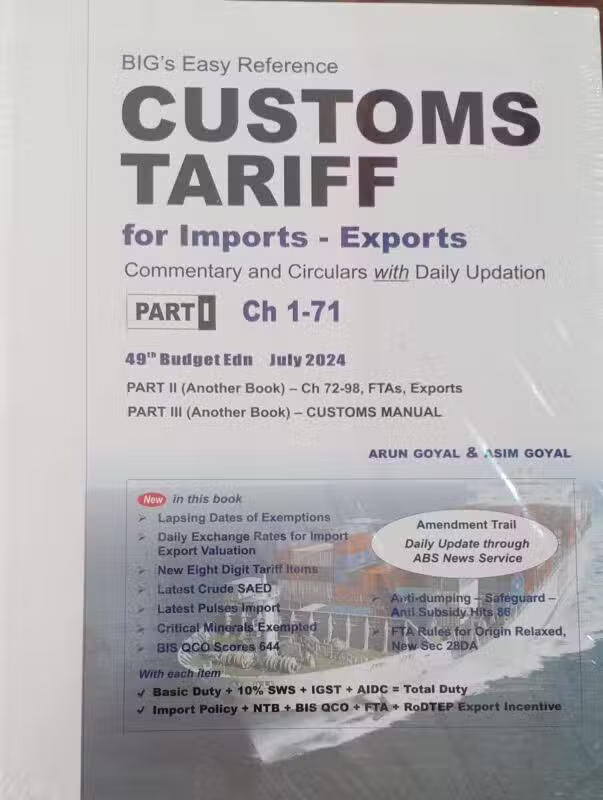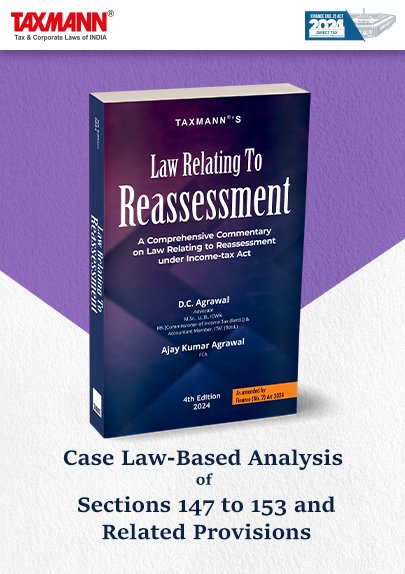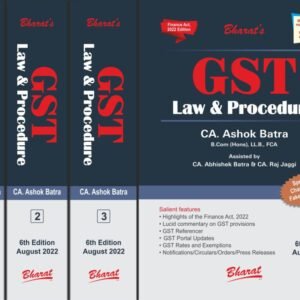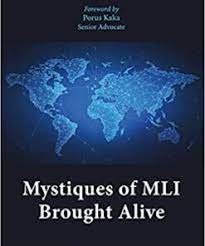Law Relating to Reassessment by D.C. Agrawal, Ajay Kumar Agrawal – 4th Edition 2024
Original price was: ₹2,695.00.₹2,020.00Current price is: ₹2,020.00.
Law Relating to Reassessment by D.C. Agrawal, Ajay Kumar Agrawal – 4th Edition 2024
Description
This book comprehensively analyses the reassessment provisions under the Income Tax Act, 1961, exploring its historical evolution and the latest amendments introduced by the Finance (No. 2) Act, 2024. It discusses the complexities of tax planning, avoidance, and evasion, illustrating how taxpayers may unintentionally cross into evasion through various practices. The book extensively analyses Sections 147 to 153 and related provisions, blending clear explanations with practical insights and referencing over 3,500 case laws, making it both a legal reference and a practical resource for professionals.
The Fourth Edition highlights old and new reassessment procedures, detailing significant changes. It covers critical topics such as deemed information, procedural requirements for notices, approval processes, penalties, and the aggregation of escaped income, focusing on practical applications. It is designed to be accessible for seasoned tax professionals and newcomers; the book presents complex concepts in an easy-to-understand format, using clear explanations, FAQs, and practical examples.
Each chapter begins with an introduction and systematically examines relevant legal provisions, procedural steps, and judicial interpretations, enhancing the reader’s understanding. Dedicated chapters on key issues, including revisions under Section 263, assessments in search and requisition cases, and the ‘travel back in time’ theory, further add to the book’s practical value.
This book is helpful for tax professionals, legal practitioners, academicians, and tax administrators involved in income tax reassessment. It caters to chartered accountants, tax consultants, and lawyers, providing comprehensive insights into reassessment laws and recent amendments.
The Present Publication is the 4th Edition and has been amended by the Finance (No. 2) Act, 2024. This book is authored by D.C. Agrawal & Ajay Kumar Agrawal with the following noteworthy features:
- [Exhaustive Coverage of Reassessment Provisions] The book covers the entire reassessment framework under the Income Tax Act, including detailed discussions on Sections 147 to 153, historical developments, procedural aspects, and the impact of successive amendments from 1918 to 2024. It addresses the concept of recording reasons before reopening assessments to ensure fairness and reduce arbitrary actions by tax authorities
- [Detailed Analysis of Amendments and Judicial Interpretations] It provides a comprehensive analysis of the legislative changes over the years, including the introduction of Block Assessments, the new reassessment scheme under Sections 153A to 153D for search and seizure cases, and the reintroduction of older procedures with modern modifications. The book explores the impact of landmark judicial decisions, such as GKN Driveshafts (India) Ltd. v. ITO, and how these rulings have shaped current reassessment procedures
- [Incorporation of Over 3,500 Case Laws] The book includes an extensive digest of case laws from the Supreme Court, High Courts, and Tribunals, making it not only a comprehensive legal guide but also a practical reference for understanding how reassessment laws are interpreted and applied by the judiciary
- [FAQs and Practical Guidance] The book includes approximately 147 Frequently Asked Questions (FAQs) covering various reassessment scenarios, practical implications, and procedural nuances to address common doubts and provide clarity. This section is designed to provide quick, authoritative answers
- [Chapters on Key Topics] The book dedicates specific chapters to crucial topics such as revisions under Section 263, assessments in search and requisition cases, implications of penal provisions, responses to notices under new laws, and enhancement in reassessment by CIT(A) and Tribunal. It also discusses critical concepts like deemed information, aggregation of escaped income, and the procedural specifics of Sections 148A and 149
- [In-depth Analysis of Procedural and Substantive Aspects] The book thoroughly examines procedural and substantive aspects of reassessment, including the issuance and service of notices, approval requirements, time limits, and the validity of notices under specific circumstances. It highlights conditions under which deemed provisions of Section 148 and procedures under Section 148A can be applied, as well as the implications of these procedures on the reassessment process
- [User-friendly Structure with Clear Explanations] Each chapter begins with an introduction and systematically covers relevant legal provisions, procedural steps, and judicial interpretations, making it accessible for seasoned professionals and beginners. Headlines and summaries at the start of each paragraph provide a quick overview
- [Special Focus on the Latest Amendments] The book details the amendments made by the Finance (No. 2) Act, 2024, including the reversion to earlier reassessment procedures with specific modern enhancements. It discusses the rationale behind these changes, the introduction of Section 148A, the conditions for reopening assessments, and the implications of these new provisions on tax assessments
- [Practical Utility for Professionals] Designed as a practical tool, the book provides strategies for effectively presenting reassessment cases before Revenue and Appellate Authorities. It emphasises the practical application of reassessment laws, including best practices for responding to reassessment notices, handling objections, and ensuring compliance with procedural requirements
- [Resource for All Levels] While comprehensive and detailed, the book’s clear explanations and structured approach suit beginners and experts. It bridges the gap between complex statutory provisions and their practical application, helping users from diverse backgrounds understand the intricacies of reassessment
The structure/contents of the book are as follows:
- Introduction
- Overview of reassessment provisions, tracing the evolution of the law, including key legislative changes
- Reopening Under Old Law
- Basic Principles and Specific Propositions: Examination of foundational aspects, including conditions for reopening, limitations, and guidelines set by judicial precedents
- Income Escaping Assessment – Section 147
- Detailed analysis of Section 147 under both old and new laws, including the concept of ‘reasons to believe’ versus ‘suggest’
- Issue of Notice – Section 148
- Procedural aspects and conditions for issuing notices, incorporating amendments from recent Finance Acts and CBDT guidelines
- Inquiry Before Notice – Section 148A
- In-depth examination of Section 148A, including its procedural requirements, legal implications, and the role of deemed information
- Impact of Section 135A in Reopening of Assessment
- Discussion on how Section 135A (Faceless Collection of Information) influences reassessment, with practical examples and legal nuances
- Concept and Scope of Deemed Information
- Detailed analysis of deemed information under the Income Tax Act, its application, and legal interpretations
- Time Limits – Section 149
- A comprehensive review of the time limits applicable for reassessment notices, including recent amendments and relevant conditions
- Documentation and Evidence
- Role of books of accounts, documents, and other evidence in reassessment processes, including their legal scope and practical application
- Issuance and Service of Notices
- Guidelines on the issuance and service of notices under reassessment provisions, including distinctions between various protocols and legal implications
- Approval Processes – Sections 148B and 151
- Examination of approval requirements for reassessment, stages of approval, and analysis of key judicial interpretations
- Validity of Notices – Sections 292B and 292BB
- Impact of Sections 292B and 292BB on the validity of notices, with a focus on relevant legal cases and practical implications
- Assessment in Search, Requisition, and Survey Cases
- Procedures for assessments in search and requisition scenarios, including the relevance of incriminating material and legislative amendments
- Revision of Reassessment Orders – Section 263
- Detailed analysis of the power of revision under Section 263, including amendments, judicial propositions, and practical examples
- Penalties Related to Reassessment
- Overview of penalties under various reassessment provisions, with a focus on the principles governing penalty proceedings
- Miscellaneous Escaped Income
- Discussion of various categories of escaped income and the conditions for reopening assessments under new reassessment laws
- Aggregation of Escaped Income – Section 149(1A)
- Rules for aggregation under Section 149(1A), including legal interpretations and practical guidance
- Validity of Notices Issued Under the Old Law
- Analysis of transitional provisions, court decisions, and notifications related to the validity of notices issued post-01-04-2021
- Response to Notices Under New Law
- Practical guidance on evaluating and responding to reassessment notices, including strategies for challenging notices and handling procedural steps
- Developments Following Ashish Agarwal’s Case
- Analysis of key judicial decisions post-Ashish Agarwal’s case and their impact on reassessment procedures
- Enhancement in Reassessment
- Examination of the powers of CIT(A) and Tribunal regarding enhancements in reassessment, including practical scenarios and legal provisions
- Theory of ‘Travel Back in Time’
- Discussion of this legal theory and its application to reassessment, with a discussion on related provisions and judicial rationale
- Amendment by Finance (No. 2) Act, 2024
- Detailed overview of the new reassessment scheme, including a comparative analysis of reassessment laws across different periods
- FAQs
- A dedicated chapter on Frequently Asked Questions addressing practical scenarios, procedural questions, and legal interpretations to aid readers in navigating complex issues
Additional information
| BINDING | PAPERBACK |
|---|---|
| AUTHOR | D.C. Agrawal, Ajay Kumar Agrawal |
| EDITION | 2024 |
| ISBN | 9789364556279 |
| PUBLICATION | Taxmann |








Reviews
There are no reviews yet.